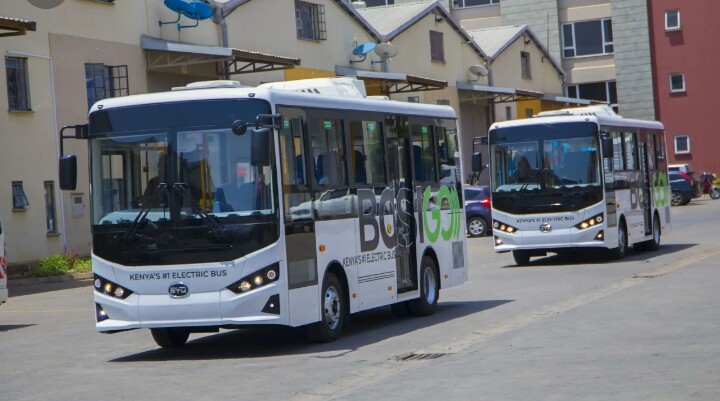BasiGo, a Kenyan e-mobility company, recently obtained $6.6 million in new funding to expedite the commercial delivery of locally constructed electric buses in the nation. This is just the most recent of several announcements that indicate that changes are about to occur in African mobility.
BasiGo plans to deploy 15 more electric buses in January 2023, which will be used by the current bus companies in Nairobi, adding to the 25 electric buses that are now in operation as part of its pilot program. With this most recent round, BaisGo’s total fundraising as of 2022 will be $10.9 million.
The statement came just a few weeks after Nigerian e-mobility startup Metro Africa said that its crowdfunding plans aim to raise $100 million, enabling the availability of electric vehicle parts in 10 African countries by the end of 2023.
In an ambitious plan to lead Kenya’s transition from gasoline-powered automobiles to electric cars, KenGen, a major hydroelectric power producer in that country, recently showcased its first four electric vehicles.
Moreso, BasiGo, which has already unveiled charging infrastructure, will start supplying locally made e-buses as part of its distinctive Pay-As-You-Drive financing scheme. According to CEO Jit Bhattacharya, the market is ready for public e-mobility.
“Over 90% of Kenya’s electricity already comes from renewables. Yet Kenya’s transport sector relies entirely on imported petroleum fuels. By electrifying Kenya’s public transport, we can make an immediate dent in climate emissions, clean up the air in our cities, and give bus owners relief from the rising cost of diesel,” the CEO of Kenya’s e-mobility leader said.
Read also: Nigeria Will Begin Manufacturing Electric Cars In 2023
Africa’s increase in green innovation
Until recently, most emerging nations could not adopt electric buses due to their high upfront costs. However, investors can purchase buses at prices equal to those of normal, diesel-powered buses because of the innovative Pay-As-You-Drive strategy.
After introducing its first four electric vehicles in Nairobi, energy company KenGen is now promoting using them.
Two SUVs and two double-cab pickup trucks will be utilized for data collection and policy creation by the firm, which also announced plans to place roughly 30 EV charging stations across the nation in 2023.
According to Abraham Serem, KenGen’s interim managing director and chief executive officer, the four EV units will be used as pilot units to supply the company with data that will be used to undertake complete research into the viability of EVs.
Metro Africa, a Nigerian EV startup, is also looking for financial partners to assist it to raise $100 million in funding to manufacture electronic vehicles and increase the supply of EV parts, including batteries, to ten African countries.
Metro Africa’s head of international expansion, David Hoyme, told Bloomberg that the business expects to raise funds by the end of 2023, allowing it to conduct operations in Cameroon, Uganda, and Egypt.
“In the next one year, we plan to roll out 30 EV charging stations in major cities across the country. The four acquired EVs we are launching today will give the company first-hand experience and data on electric vehicles,” he explained.
Amazon plans €1 billion Investments on electric vehicle fleet
Africa’s increase in green innovation
The abundance of non-electric vehicles in Africa presents a lucrative potential to promote e-mobility in African cities, according to Tom Courtright, the Association for Electric Mobility and Development in Africa’s (AEMDA) research director located in Nairobi.
Because more investors are showing interest, he thinks startups will do better in the future. Furthermore, the majority of African governments have accommodating policies that will promote the industry.
“We just need to make sure that consumer education is undertaken alongside educating local investors so that they begin investing in the sector,” he explained.
Insisting that 2023 projections from significant players are an indicator of the “open arms with which e-mobility has been embraced,” Courtright insists that the future of e-mobility is “prime.”
He asserts that “the moment we have… a variety of investors pumping resources into infrastructure such as solar panels and batteries” is when e-mobility will be fully realized.
Mordor Intelligence projects that by 2027, the African electric car market would have grown to $21.39 billion from its estimated value of $11.94 billion in 2021.




